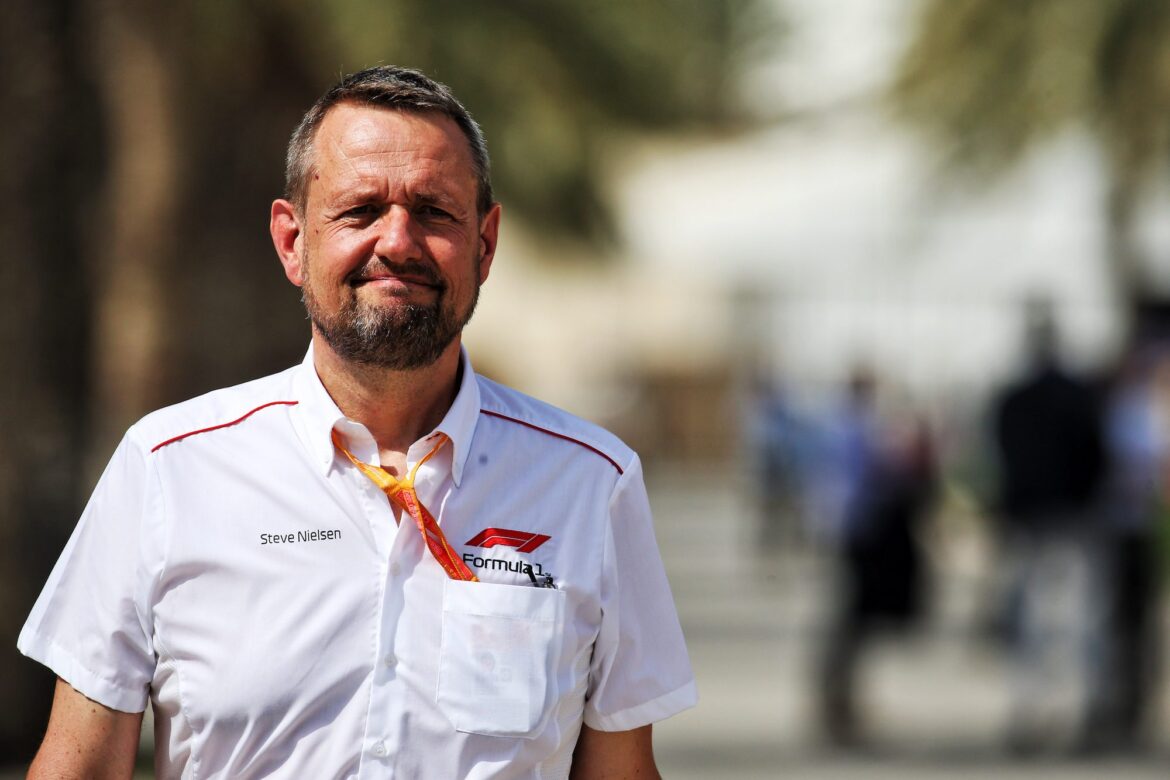Alpine Racing Team’s Leadership Transition: The Search for a New Team Principal
The Alpine F1 Team is currently navigating a significant leadership transition following the unexpected departure of Oliver Oakes. This change has sent ripples through the organization, prompting the team to seek a capable successor to fill the leadership void left by their former team principal. Flavio Briatore, who is serving as an interim consultant for the team, is not expected to take on the role permanently. Instead, Alpine appears to be leaning towards a more technical and stable choice for its future leadership.
The Growing Favor of Steve Nielsen
One name that has emerged as a strong candidate within the Alpine organization is Steve Nielsen. With a wealth of experience in the Formula 1 landscape, Nielsen has held prominent roles with several teams throughout his career. His reputation and background make him a compelling choice for a team that is eager to stabilize and enhance its competitive edge in the sport.
Nielsen’s candidacy for the position of team principal has gained momentum, especially in light of recent discussions and developments. While he may not officially assume the title of team principal—due to the need for formal approval from the FIA for anyone stepping into leadership positions—his expertise and familiarity with the intricacies of F1 operations position him as an invaluable asset during this transitional period.
The Current Landscape of Alpine’s Leadership Search
As the Alpine team continues to evaluate potential candidates, the internal dynamics suggest a preference for a candidate who can bring both stability and technical acumen. This decision comes at a time when the team is looking to re-establish its footing in the highly competitive F1 environment.
Amid speculations surrounding Christian Horner’s future with Red Bull Racing and his recent private discussions with Briatore during the Spanish Grand Prix weekend, Alpine seems to be charting a different course. Rather than pursuing a high-profile figure, the team appears to be opting for a more pragmatic approach. This strategy emphasizes technical expertise over media visibility, which could serve the organization well in the long term.
Nielsen’s Rich Background in Formula 1
Steve Nielsen’s extensive background in Formula 1 is one of the key factors contributing to his rising prominence as a candidate for the role. Throughout his career, he has been associated with several notable teams, including Lotus, Benetton (which is now known as Alpine), Williams, and Toro Rosso (now called AlphaTauri). His deep understanding of the sport and the operations of various teams makes him a strong contender for the position.
Having spent a decade working at the Enstone facility, Nielsen is intimately familiar with the team’s structure and operational dynamics. This familiarity could be crucial as Alpine aims to create a cohesive and effective leadership team moving forward. Additionally, Nielsen’s recent role as a consultant in Formula 1 and his previous tenure as the FIA’s sporting director further enhance his qualifications.
The Competitive Landscape and Candidate Considerations
As Alpine weighs its options, it’s worth noting that other names have been discussed in the context of the team’s leadership search. Former team principals Guenther Steiner and Otmar Szafnauer were also among those considered for the role; however, recent reports indicate that they may not be in the running anymore. This development narrows the field, further solidifying Nielsen’s position as the leading candidate.
The decision to move forward with Nielsen, should the team finalize his appointment, could reflect a broader trend in Formula 1 where teams prioritize stability and experience in leadership roles over flashy hires. In an era where the sport is becoming increasingly competitive, having a leader with a deep technical understanding and a proven track record could be the key to Alpine’s success.
The Future of Alpine F1 Team
As Alpine embarks on this journey to find its next team principal, the implications for the team’s performance and strategy are significant. The F1 landscape is evolving, with teams vying not just for race wins but also for long-term sustainability and growth. The new leadership will play a crucial role in shaping the team’s direction, fostering talent, and making strategic decisions that could impact their competitive standing.
With the right leadership in place, Alpine could be poised for a resurgence in the coming seasons. The combination of technical know-how and a clear vision for the future will be essential in navigating the challenges that lie ahead in Formula 1.
Conclusion
In summary, the Alpine F1 Team is at a pivotal juncture, seeking to fill the leadership void left by Oliver Oakes with a candidate who embodies the values of stability and technical expertise. As Steve Nielsen emerges as a frontrunner in this search, the team’s focus on a pragmatic and experienced leader may set the stage for a new chapter in their competitive journey. With the right direction, Alpine has the potential to enhance its performance and solidify its position in the ever-evolving world of Formula 1.
